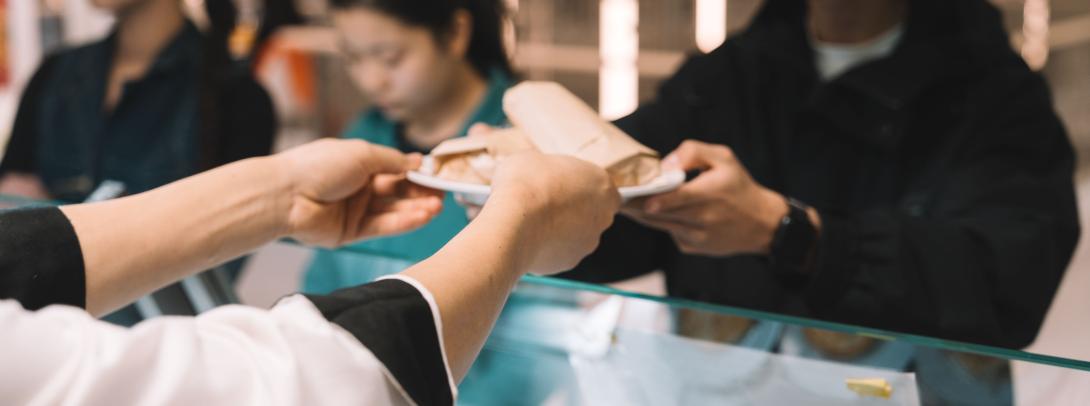You’ve probably noticed some new meal options available in NYU Shanghai’s campus cafeteria: falafel, chicken shawarma wraps, and hummus are now available at the Halal food station on B1. The menu expansion is the delicious result of a collaboration between the cafeteria staff and Clinical Assistant Professor of History Wen Shuang, whose research and teaching interests center on modern China and the Arab world.
One of the classes that Wen teaches is a Perspectives on the Humanities course: Arab-Islamic Influence on the West. The course introduces Arab and Islamic culture and history and examines the ways in which the Middle Eastern region has impacted the world, from music and cuisine to language, math, and medicine.
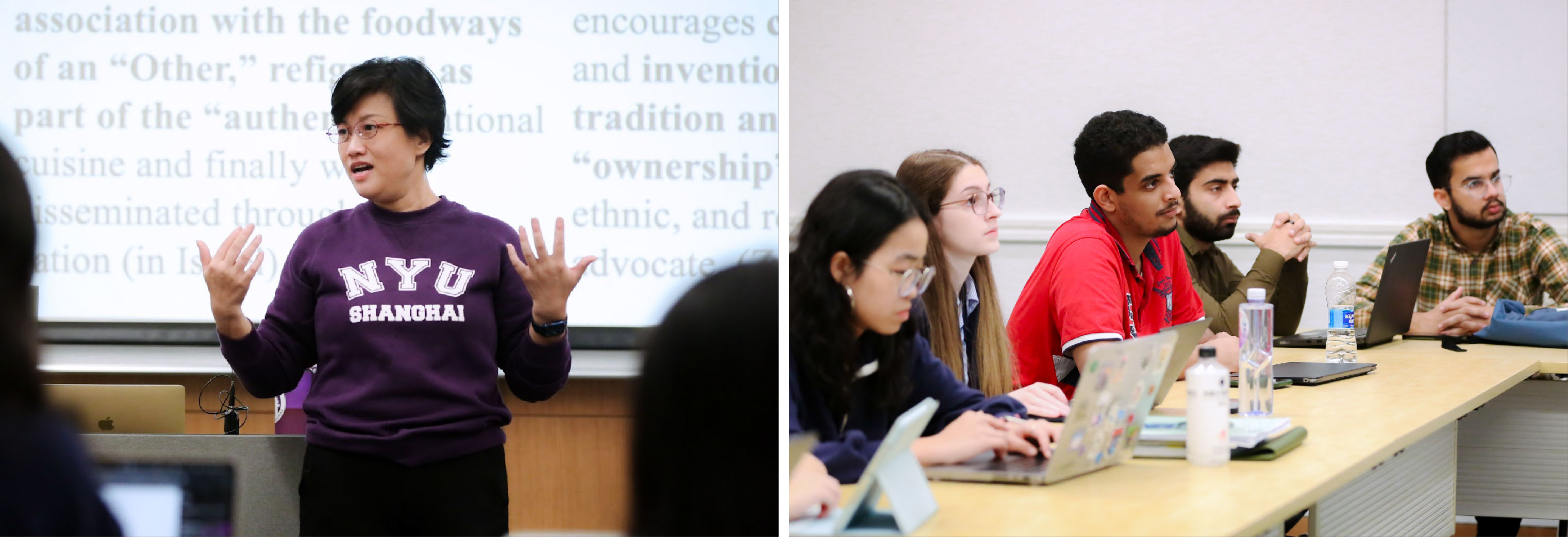
Professor Wen Shuang teaching her class.
By exploring the influence that the Arab-Islamic world has had, Wen says she hopes the class will enhance understanding about the Arab world and make studying abroad at NYU Abu Dhabi more accessible to NYU Shanghai students. Rakan al-Shaibani ‘25, an international student from Yemen, says he was attracted to the class to learn about the culture he grew up in from another perspective. To al-Shaibani, studying the ways that the Arab world has influenced the world allows for a more nuanced study of the region, beyond stereotypical images. “[This class gives] a different depth and different level of dimension,” he says.
Wen says she also wants to broaden students’ understanding of history as a field of study. In her class, she introduces a more nuanced approach, encouraging her students to think of history as a narrative, and to understand the social history of ordinary people, not just those who make the history books. “The lives of ordinary people have many connections to food,” says Wen. “The development of the economy, trade, the environment, and people's cultural habits are all closely related to food, too.”
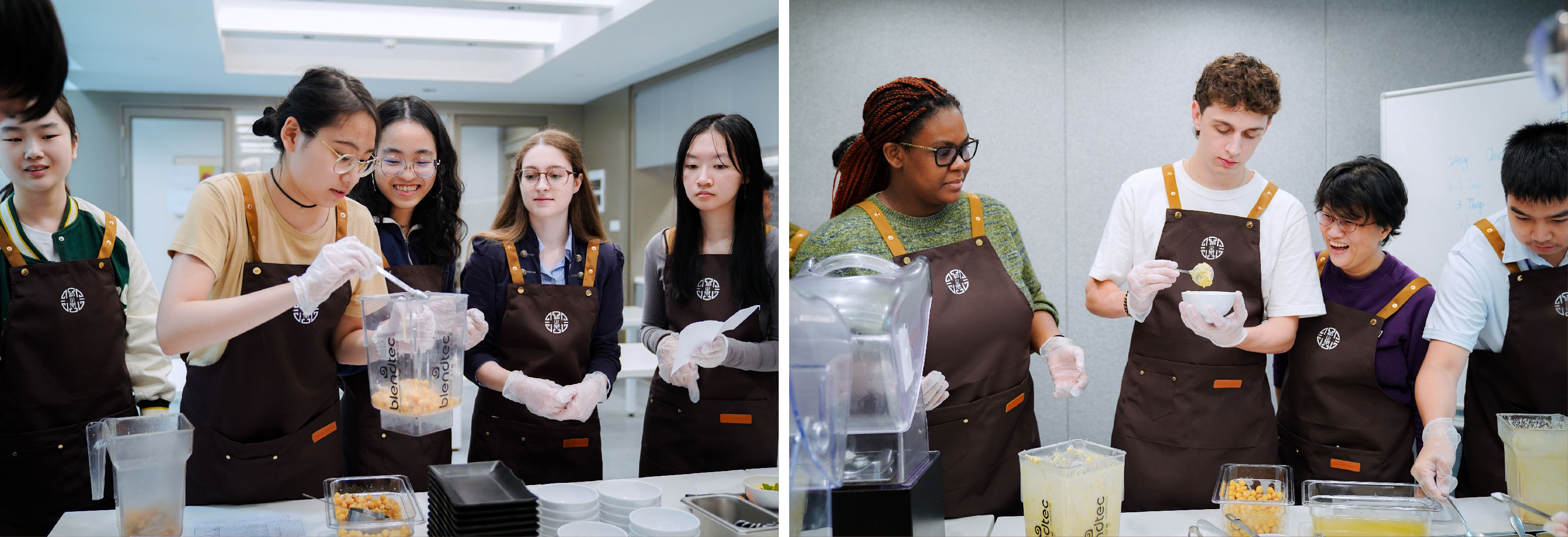
Students learning to make hummus in class.
By highlighting Middle Eastern food, she hopes students can better understand the physical environment of the region and what crops grow there, how the same dish can vary across borders, and how trade and migration led to the spread of Middle Eastern culture, including food, music, language, and more to the rest of the world.
Students learned how to make hummus, a classic Middle Eastern side dish made of cooked, mashed chickpeas, sesame seed paste, lemon juice, and garlic. It was the first time that Liang Yuqi ‘26 had taken part in this kind of interactive cooking activity during a class. “It’s both educational and entertaining to learn about food through a hands-on activity and then explore the culture through the food,” she says.
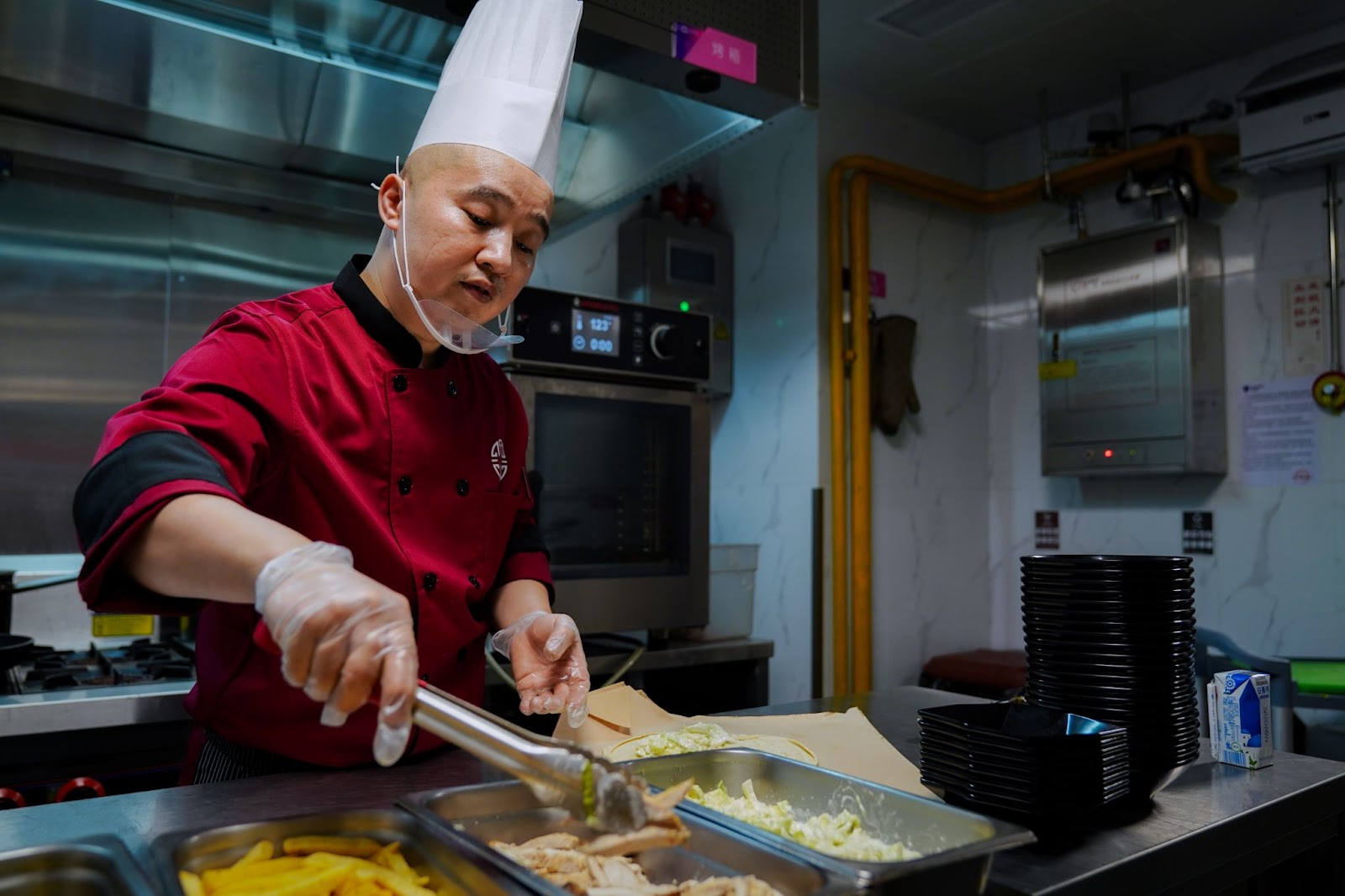
Head Chef Jack Cheng preparing shawarma in the halal kitchen at NYU Shanghai's cafeteria.
The cultural learning experience extended beyond the classroom. To prepare for the addition of Middle Eastern foods to the cafeteria menu, several food service staff members worked with local Lebanese eatery Eli Falafel to learn how to prepare dishes such as shawarma and hummus. More accustomed to preparing Chinese halal dishes like Lanzhou la mian (hand-pulled noodles), the staff was at first a bit intimidated by the unfamiliar ingredients and flavors, but say they enjoyed the process. “It was very hard, and we had many problems, but after adjusting the flavors over and over, I gradually discovered that the collision of cultures also gave me some new inspiration, and a new understanding of halal cuisine,” says Halal chef Zhou Yuhai.
Phylicia Bankoh ‘26, who lived in Dubai during her childhood, says she hopes that the introduction of the dishes to the cafeteria will spark more curiosity. “[I hope] it will also encourage other students to [learn more], and take this class too if they get the chance,” she says.
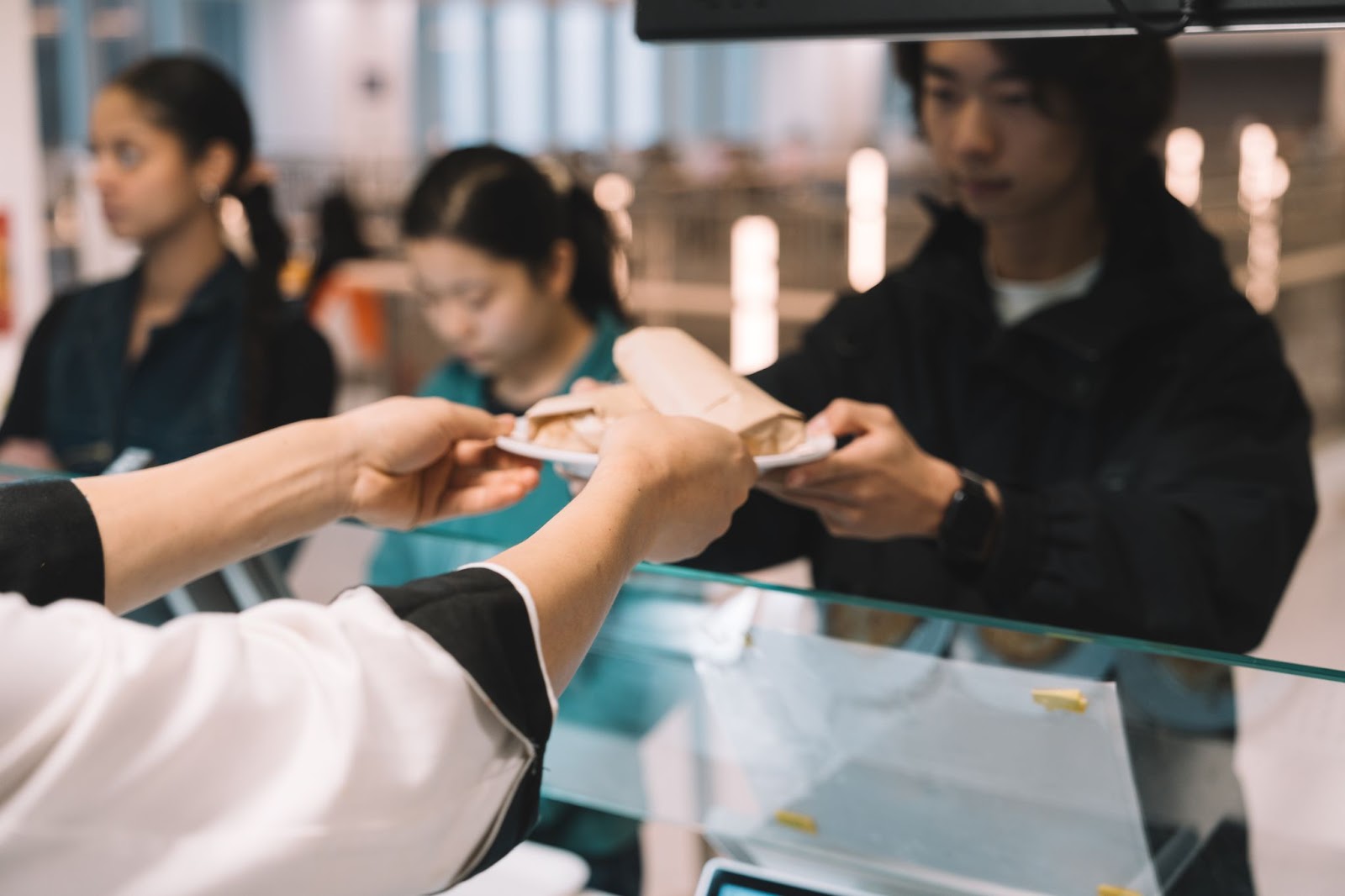
Cafeteria workers serving Middle Eastern dishes to students.
The new menu additions have been welcomed by students. Jason Liu ’26 says he enjoys having healthy choices like hummus on the menu. Osama Al Ashqar ‘27, a first-year student from Jordan, who eats halal, grew up eating shawarma. “Since it has been here, I have it every day. It’s the closest thing I can get to shawarma,” he says, adding that while the flavor isn’t as authentic as what he can get at home, he still appreciates it. “It’s its own twist–I like it.”


